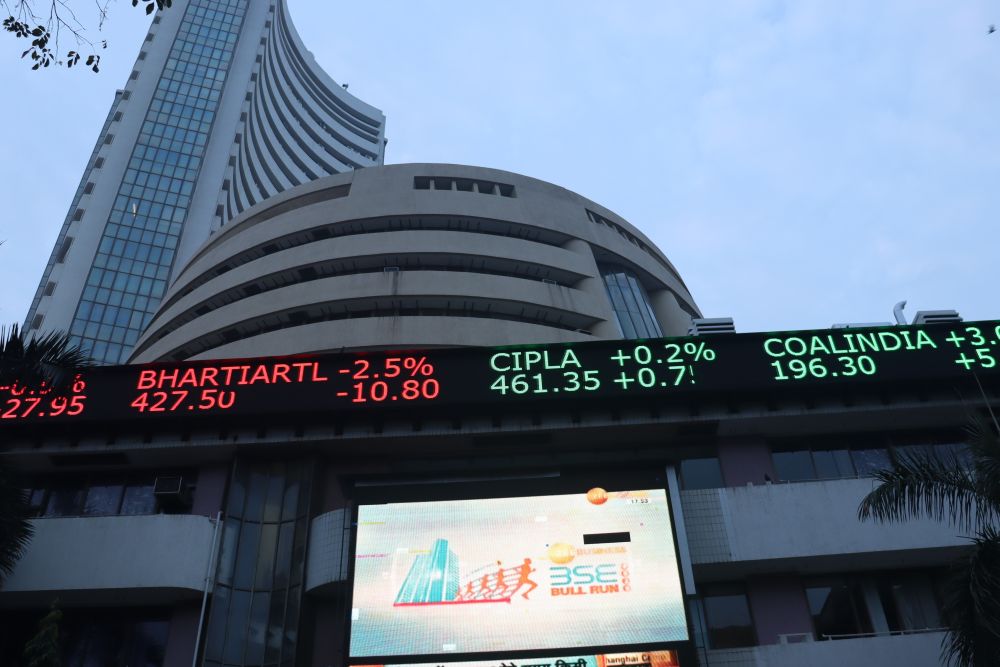
So, what's been top of the London agenda in the past week or two? Well, another week of Brexit chaos was slightly overshadowed; a blessing were it not for the fact that it was by the World Economic Forum. Which meant we all had to endure days of smiling, smug and self-absorbed political and business leaders, royalty, actors, rock stars and activists spouting nonsense in the Davos snow, brought to us courtesy of a desperate and toadying media. All quite unedifying really.
Talking of unedifying, how about the reversal by Santander chair Ana Botín to have Andrea Orcel as the new group CEO because of a very public spat over who would pay Orcel's 50 million euro in accrued compensation?
Beyond the question of who put this sorry affair into the public domain and why, Orcel's fat pay demands make him look greedy and out of touch, especially in an era of banker pay restraint. The fact that this key issue was left hanging makes both Orcel and Botín look ridiculous. UBS, in sticking to its bad leaver rules on comp, came out looking pretty good. As did Santander's board, which rightly didn't want to have to try and explain away Orcel's massive pay cheque to shareholders, a fractious populace or the socialist government.
Back in the real world, I'd been thinking that European banking has had a bit of a torrid time since the start of the year. Case in point: the fact that the European Central Bank is still focused on dealing once and for all with the problem of legacy European bank NPLs before another crisis takes root is hardly a secret. But 'news' in January that banks will be guided to increase provisions on their legacy stack to the same level as new NPLs, in effect writing them off over the next few years, still caused a sharp intake of breath and a bout of market volatility.
Puzzling really, since the ECB had said this last June. Nonetheless, a number of large Italian banks were forced to trot out statements in January outlining what little difference this non-binding regulatory guidance will make. A real storm in a teacup but perhaps underlining how fragile market sentiment is.
Beyond that, a number of long-running stressed banking scenarios seem to have gained impetus in recent weeks and appear either to be heading towards conclusions, or are being taken more firmly in hand.
In the case of the former, I'm talking about sagas at NordLB, Banca Carige, Monte dei Paschi di Siena (MPS) and (to a lesser extent) Banca Popolare di Bari; in the case of the latter Deutsche Bank and Commerzbank, where there will certainly not be any short-term resolution but where the regulatory and political machine is clicking into gear.
Gossip is that the Italian government is looking at merging Carige and MPS with another bank. UBI Banca was mentioned in dispatches though was quick to dismiss speculation. That would be a neat solution on paper though messy and potentially expensive to execute. Another story doing the rounds is a government-assisted merger of MPS with BPER Banca.
The problem is that any solution to the problems of MPS and Carige would involve capital state injections. Carige's attempt to raise 400 million euros in equity late last year was rebuffed by the group's largest shareholder, forcing the ECB to place the bank under temporary administration at the start of 2019. The government has subsequently provided guarantees on Carige debt, and there is talk of nationalisation or a EU precautionary recap.
For MPS, bailed out by the state in 2018, the ECB in January pointedly expressed concerns about the bank's lack of market access, low profitability and failure to keep to the targets of its bail-out plan. MPS had tried but failed to access the Tier 2 market in Q4 2018. At the other end of the scale, it did manage to raise 1 billion euros in covered bonds in late January but had to pay nosebleed levels of 190bp over mid-swaps.
On that basis, bankers say capital lines at reasonable cost look out of bounds. Bearing in mind fellow EU periphery lender BCP in Portugal paid 941.4bp over mid-swaps in January to take 400 million euros of Triple C rated deeply subordinated capital out of the market offers a good idea of how elastic the term 'reasonable' is here.
On the other scenarios, Popolare di Bari's clean-up plan, which I read will include a 200 million euro offering of subordinated debt, is imminent. There's talk of a merger of several fellow Italian co-operative banks in the central-southern area of Italy, though Bari said only that it was focused on delivering a plan for the future of the business.
In Germany, despite troubled lender NordLB's excitement at having a number of potential suitors circling, bids from Commerzbank and Helaba failed to materialise. Private equity firms Cerberus and Centerbridge have reportedly combined their previously separate bids into a 1 billion euro joint bid for a 49.8% stake, putting them into contention with the public-sector solution fronted by the state of Lower Saxony, the majority shareholder.
As for Deutsche Bank (DB), the German political establishment seems to be getting more and more anxious about finding a solution. There were apparently around two dozen meetings between DB executives and politicians in 2018 and the finance ministry has reportedly asked supervisory authority BaFin to evaluate potential merger outcomes.
Ideally, Germany would like a home-grown national champion to feed its export machine. Trouble is: most scenario analysis suggests having DB merge with Commerzbank is not the ideal solution but that a cross-border deal would be optimal. That would certainly be preferred at the EU level as it would feed into the political end-game in Brussels of pan-Europeanism and underpin the tenets of Banking Union and Capital Markets Union.
While the politicians politick, DB-related news continues to flow. Beyond merger talk; police raids on head office, an EU investigation regarding breaches of antitrust regulations in dollar SSA bond trading, a 11 billion euro lawsuit brought by businessman Hafez Sabet, reports of significant cuts to the bonus pool and more continue to keep DB front-of-mind on a daily basis.
More clues will doubtless be revealed – or perhaps more likely inferred – once DB's annual results are out on February 1.









